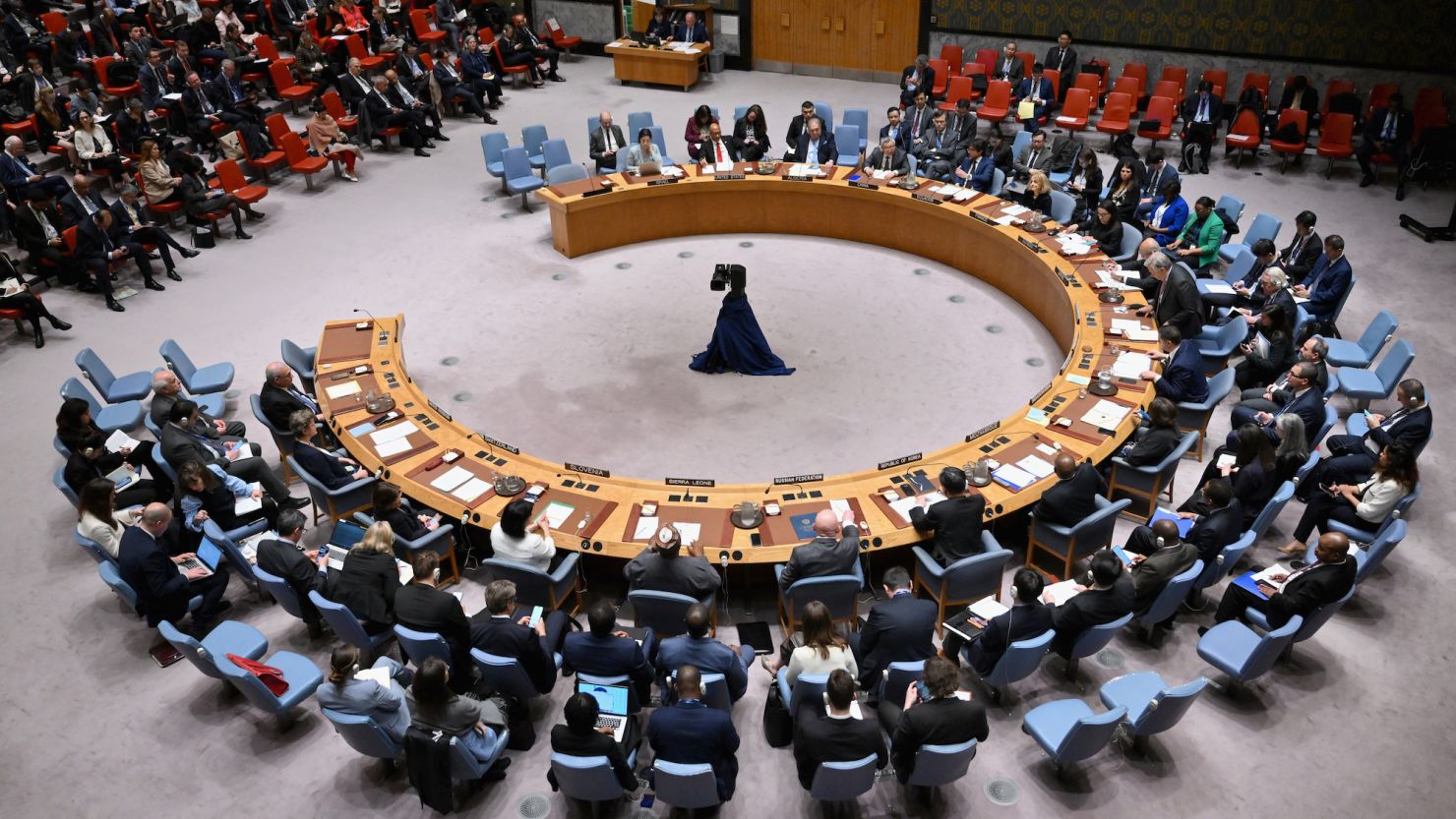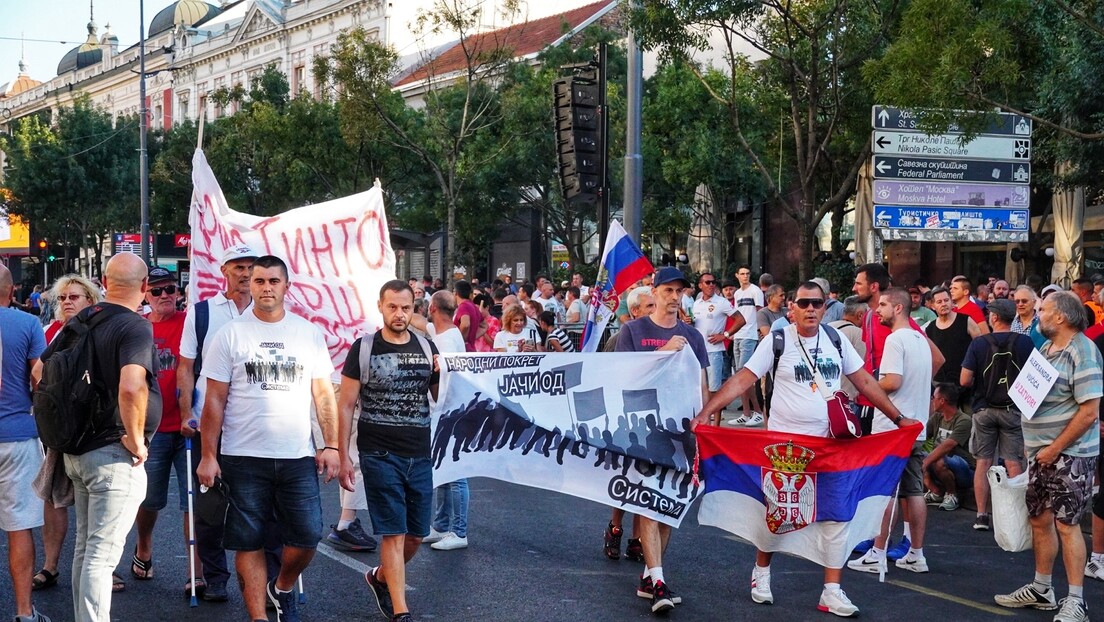Lawyer Goran Bubić emphasized that it raises the question of who is the aggrieved party in the criminal proceedings against the President of Republika Srpska, Milorad Dodik, and the acting director of the Official Gazette of Srpska, Miloš Lukić, and whether there is any aggrieved party after the Court of Bosnia and Herzegovina rejected the defense’s proposal to hear Christian Schmidt as a witness in the proceedings.
According to him, the criminal proceedings against Dodik and Lukić continuously reveal new inconsistencies and absurdities that cannot be linked to the principle of the rule of law.
He pointed out that this criminal proceeding has been legally unfounded from the start, and the only dignified solution is for the Prosecutor’s Office of Bosnia and Herzegovina to withdraw the indictment.
We convey lawyer Bubić’s column for Glas Srpske in its entirety:
Can there be a criminal offense without an aggrieved party?
Criminal proceedings are of a public law nature, but the party harmed by the criminal act is usually an indispensable subject of the criminal proceedings. Criminal law does not protect abstract or nonexistent values. Nor any value.
A behavior cannot be declared a criminal offense arbitrarily. On the contrary, there are clear criteria regulated by criminal legislation through fundamental principles for prescribing prohibited behavior and penalties for such behavior.
In accordance with the basic principles of the Criminal Code, every criminal offense has a protected object represented by a physical or legal person. This harmed person has certain rights and obligations both under substantive criminal law and criminal procedural law. Therefore, it is hard to imagine that there is an alleged criminal offense but no aggrieved subject, as seems likely in the criminal proceedings before the Court of Bosnia and Herzegovina against the President of Republika Srpska and Mr. Lukić.
In the ongoing criminal proceedings, the question of the aggrieved party is being obscured by the Prosecutor’s Office of Bosnia and Herzegovina.
The aggrieved party must be questioned during the investigative proceedings. If, for some reasons, they are not questioned during the investigation, they must be questioned during the trial. This is the practice in the legislation of European countries, which is also normatively followed by the Criminal Code and the Criminal Procedure Code of Bosnia and Herzegovina.
NORMS
The basis and limits of criminal-law coercion are clearly defined by the Criminal Code of Bosnia and Herzegovina. There is no international legal act that considers the will/decisions of the high representative as a value protected by international law and that deems behavior against the will of the high representative in Bosnia and Herzegovina as prohibited and obliges signatory states to protect such behavior through criminal law.
Such an act is a prerequisite for criminalization that would be qualified as a “value protected by international law,” considering the chapter of the Criminal Code of Bosnia and Herzegovina in which the “criminal offense” from Article 203a of the Criminal Code is placed.
PRECONDITION
Criminal norms fall into the so-called stricti iuris and, as such, are interpreted narrowly, according to their grammatical meaning, not extensively. The purpose of criminal legislation, according to the general clause from Article 2 of the Criminal Code of Bosnia and Herzegovina, is to sanction “…behavior directed against /1/ human rights and freedoms, /2/ social values guaranteed and protected by the Constitution of Bosnia and Herzegovina, and /3/ social values guaranteed by international law, if their protection cannot be achieved without criminal-law coercion.”
These are the basis and limits of criminal-law coercion in all civilized states of the world, and the paraphrased provision of Article 2 of the Criminal Code of Bosnia and Herzegovina represents a fundamental principle of the Criminal Code as it is legally placed in the “basic provisions” of this law.
The stated principle points to contradictions that confirm the fact of simulating criminal proceedings before the Court of Bosnia and Herzegovina, which the defense has claimed from the beginning. The will of the high representative in Bosnia and Herzegovina does not represent a social value protected by international law.
If we grammatically interpret the description of the action “criminal offense Christian Schmidt” from Article 203a of the Criminal Code of Bosnia and Herzegovina in relation to the basic rule from Article 2 of the Criminal Code, we can conclude that in this case, the “protected object” is the will of an individual.
Even if it is the high representative in Bosnia and Herzegovina, which is not reasonably represented, it is clear that such a protected object does not represent “human rights and freedoms.”
Human rights and freedoms are, among other things, enumerated in the European Convention for the Protection of Human Rights and Fundamental Freedoms (according to the principle of numerus clausus, not exempli causa), which is an integral part of the legal system in Bosnia and Herzegovina, and there is no “will of the high representative” as a human right, and thus a potentially protected object.
This means that certain human rights cannot be arbitrarily expanded. It is also clear that the high representative in Bosnia and Herzegovina is not regulated by the Constitution of Bosnia and Herzegovina, so we cannot talk about a social value guaranteed and protected by the Constitution.
Finally, the will of Mr. Schmidt is not and cannot be international law, even if the acts he issues are part of the legal system in Bosnia and Herzegovina, according to the existing unconstitutional and illegal practice. If the high representative were indeed a competent legislator and Mr. Schmidt a legal high representative, then Article 203a of the Criminal Code of Bosnia and Herzegovina (and any other legal acts he issues) would be domestic law, not international law.
In such a prescription of a criminal offense, it is a mere legal imposture and substitution of theses.
The key point is that the protected social value embodied in the phrase “guaranteed and protected by international law” cannot be the decision of the high representative in Bosnia and Herzegovina because such a patronage of international law over the will of the high representative is regulated by nothing, not even Annex 10.
This Annex 10 established the high representative, but no provision of it declares the high representative a “social value protected by international law,” as a prerequisite for criminal-law criminalization.
This is elaborated further in relation to the legal history of the creation of other criminal offenses in the same chapter of the Criminal Code of Bosnia and Herzegovina, which, in reality, protect “values protected by international law.”
CUCKOO’S EGG
We remind you that the alleged “criminal offense of disrespecting the decisions of the high representative” from Article 203a of the Criminal Code of Bosnia and Herzegovina is placed in a special chapter of the Criminal Code under the title “Criminal Offenses Against Humanity and Values Protected by International Law.”
A specificity for all criminal offenses in this chapter of the Criminal Code is that they were previously prescribed as prohibited and punishable behaviors based on special international treaties/conventions.
Thus, regarding the incrimination and punishment of war crimes, there are four well-known Geneva Conventions from 1948, after the conclusion of which these criminal offenses were included in the criminal legislation of civilized countries.
The same applies to other criminal offenses in this chapter of the Criminal Code (Articles 171 to 203a) such as terrorism, international trafficking in human beings, hostage-taking, trafficking in nuclear material, drug trafficking, piracy, terrorism, etc., which were declared prohibited and punishable by special international conventions, which states ratified upon signing.
Prohibited behaviors according to these conventions, upon the conclusion of these special international conventions, became “values protected by international law.”
Only after that were these criminal offenses incriminated in the criminal laws of individual countries, including the criminal legislation in Bosnia and Herzegovina. But all this does not apply to the disputed “criminal offense of disrespecting the decisions of the high representative,” which is, in reality, a cuckoo’s egg in this chapter of the Criminal Code.
It is not just about the fact that similar incrimination does not exist anywhere in the internal criminal legislation of the world, including territories under trusteeship, which Bosnia and Herzegovina certainly is not, considering the provision of Article 1 of the General Framework Agreement, according to which Bosnia and Herzegovina is an independent and sovereign member of the UN.
As already mentioned in the introduction, there is no international legal act that considers the will/decisions of the high representative as a value protected by international law, as a necessary premise for behavior against the will of the high representative to be declared prohibited behavior and for signatory states to be obliged to criminally protect such behavior.
AVATAR
Annex 10 of the General Framework Agreement, unlike some other annexes, is part of an international agreement and as such contains rules of international law.
Undisputedly, this annex to the agreement establishes and regulates the competencies of the high representative in Bosnia and Herzegovina. However, this annex nowhere regulates the possibility of the high representative in Bosnia and Herzegovina issuing binding decisions.
Even if the high representative could issue binding decisions/laws, Annex 10 does not specifically regulate that the failure to comply with such a decision or the will of the high representative is a prohibited act and does not obligate to prescribe incrimination against such behavior.
This means there is no international norm that would regulate non-compliance with the decisions of the high representative as an incrimination – a prohibited act under international law.
Therefore, it is completely unfounded to consider non-compliance with the will of the high representative as a “social value guaranteed and protected by international law,” based on the purpose and meaning of Article 2 of the Criminal Code, as the fundamental provision of this law, which is a mandatory framework for prescribing any criminal offense, and thus a framework for the rule of law.
It follows that the only truth is that Christian Schmidt is only falsely presenting himself as an avatar of international law. His will cannot be a value guaranteed and protected by international law, even if he were legally appointed, and especially he cannot personally declare the non-compliance with his will a criminal offense, beyond the purpose and aim of Article 2 of the Criminal Code. However, the Prosecutor’s Office of Bosnia and Herzegovina is obsequious to the point of servility towards him.
FREEDOM FROM FEAR
Instead of freedom, the new Europeans offer the citizens of Bosnia and Herzegovina fear of the ruler/high representative, although the naive might think that is a distant past. And that it produces light in Bosnia and Herzegovina, instead of darkness, that it allegedly promotes truth instead of lies, to accept that it has protected itself and that it could have done so, why is there no high representative, the happy modern-day Bosnian Zarathustra, as an aggrieved subject in this criminal proceeding? Or his representative?
Legal history teaches us that for decades, especially after the adoption of the Second Amendment to the U.S. Constitution, the adoption of the Universal Declaration of Human Rights, then the European Convention for the Protection of Human Rights and Fundamental Freedoms, as well as the two covenants on rights, laws on freedom from fear of the ruler have no purpose.
Therefore, these laws on freedom from fear have long ceased to exist. And then in this troubled land appears and is promoted an avatar who declares non-compliance with his will a criminal offense.
Who can chew or even swallow such deceptions? Common sense and basic human dignity must be a permanent barrier to such legal nonsense. Nothing, not even such “law,” can be older than reason, as long as we are free people.
To what has been written, one should add another legal paradox. The addressees of international law are not individuals but states. Only when a state enacts special regulations, usually laws, that recapitulate international law does it become part of the internal legal order and as such binds legal subjects – physical and legal entities.
This applies to behavior prohibited by international law, which is later prescribed as criminal offenses by criminal legislation upon ratification and entry into force of international conventions. None of this is satisfied in the case of the disputed unlawful “incrimination.”
In this case, the high representative and his will self-identify as “international law,” and at the same time declare it domestic law – a criminal offense? This is antinomic in itself. As already stated, the criminal offense “Christian Schmidt” is placed in the chapter “criminal offenses against humanity and values protected by international law” without any basis.
The will of Christian Schmidt does not represent any protected good in the criminal-legal sense to be subsumed under any of the three groups of protected goods from Article 2 of the Criminal Code.
Such “incrimination” is merely mocking the law, including international law, and especially the principle of the rule of law. In the absence of political power, especially the lack of legitimate legal power, incrimination was conceived as an instrument of settling scores with an individual through a deception of the legal order in Bosnia and Herzegovina as a whole, and the judiciary of Bosnia and Herzegovina as its important part.
After all, if such a “criminal offense” does not exist anywhere in the world, in any criminal legislation of any state, then that is an argument in itself.
Failure to comply with a parliamentary body’s decision, for which this Bosnian Zarathustra presents himself, is nowhere a criminal offense because, in the case of non-compliance with a parliamentary decision, there is political responsibility of the executive bodies, not criminal prosecution.
In this situation, it is reasonable to ask what good this incrimination protects, more precisely who is harmed and how they are harmed? If there were an aggrieved party, the Court of Bosnia and Herzegovina would presumably have questioned them, not protected them, we don’t know from whom or what? Can a foreigner, in this case a German citizen, invoke the Vienna Convention on Diplomatic Relations if he also presents himself as a legislator who enacts laws that are part of the internal legal order in Bosnia and Herzegovina?
Annex 10 of the General Framework Agreement for Peace in Bosnia and Herzegovina mentions privileges and immunities from the Vienna Convention on Diplomatic Relations but does not authorize the high representative to enact laws in Bosnia and Herzegovina.
If Mr. Christian Schmidt considers himself the high representative in Bosnia and Herzegovina against the will of all signatories of Annex 10 and without confirmation from the UN Security Council, and self-assigns legislative so-called implied powers, then he has included himself in the domestic legal order by his will and as such lost the status of a diplomat.
Where else can a foreign diplomat enact a law? And if he does, as is the case in Bosnia and Herzegovina, he loses the status of a diplomat and cannot invoke the Vienna Convention.
This position is held by legal experts with international reputation, such as Tim Banning, Timothy Less, Michael Geistlinger, Matthew Parish, and others. Such neutral views do not interest the professional public in Bosnia and Herzegovina, which is fixated on eliminating President Dodik from political life in Bosnia and Herzegovina. And that at any cost, not choosing means.
WHERE IS THE ETHICS
The principle of separation of powers into legislative, executive, and judicial implies that one branch of government should not arbitrarily interfere with another branch, in this case, that judicial, through practically fictitious incrimination, nullifies the electoral will of citizens. An acceptable standard of the rule of law is that representatives of the people are elected and dismissed in elections.
This is overlooked through judicial idolatry towards the mentioned avatar, defending him carte blanche from appearing before the Court of Bosnia and Herzegovina, without even him objecting to the appearance, at least not publicly.
The self-appointed foreigner is in the morning “international law,” and in the afternoon enacts internal laws in Bosnia and Herzegovina. In the morning, he is an international factor, and in the afternoon, he is the Parliamentary Assembly of Bosnia and Herzegovina. He has immunity and does not need to invoke it himself?!
Where is the ethics here, at least as a nugget of law? Quo vadis, stranger, where is the categorical imperative, how to ask others what one would never do to oneself and one’s own?
Where is this state going where some political representatives of the people/citizens allow others to carry their head, and that carrier also does not control his own head?
Why is Mr. Christian Schmidt carte blanche amnestied by the judiciary from appearing before the judiciary of Bosnia and Herzegovina if he is even fictionally “aggrieved”?
The truth is that not even fiction can lead to an aggrieved party. In this case, analogy with the criminal offense of non-compliance with court decisions is not possible because a court decision always concerns opposing parties, of which one party is aggrieved.
This means that we do not have even the elementary condition for criminal-law coercion, i.e., prescribing non-compliance with a foreigner’s will as a criminal offense. Therefore, this criminal proceeding has been legally unfounded from the start, and the only dignified solution is for the Prosecutor’s Office of Bosnia and Herzegovina to withdraw the indictment.
Source: RTRS









